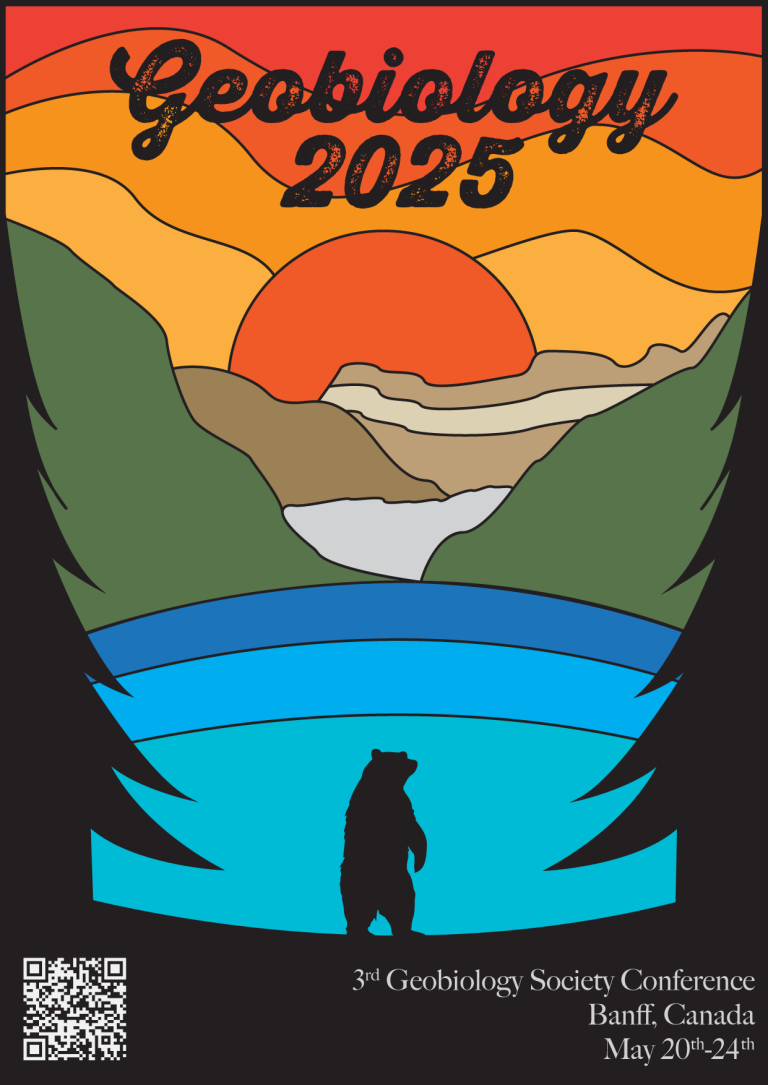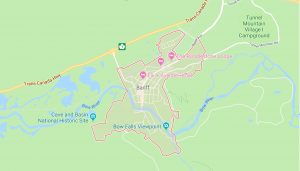
The Geobiology Society is back for our 3rd Geobiology Society Conference.
We invite geobiologists from around to world to share their research and engage in stimulating scientific discussion at the world renowned site, Banff, AB.
Dates: May 20th to 24th, 2025.
Location: Banff Park Lodge, Banff, AB, Canada
Following the success of the conferences held in Banff in 2017 and 2019, the Geobiology Society is excited to announce the 3rd International Geobiology Conference, scheduled to take place in Banff from May 20-24, 2025. With around 300 attendees anticipated from around the world, “Geobiology 2025” will provide an excellent opportunity to explore the latest advancements in the field within a relaxed but engaging setting. A key focus of this conference will be fostering connections across the diverse disciplines within geobiology, particularly bridging the gaps between geological and biological perspectives.
The conference theme,
"Tracing the biosphere through time"
will guide our discussions over the course of three days:
Day 1: We will journey into the Archean Eon, a pivotal period in which prokaryotic life evolved into complex microbial communities that played a crucial role in making Earth habitable. Key topics include the development of oxygenic photosynthesis, a significant milestone in Archean geobiology as it eventually led to the Great Oxidation Event and major atmospheric and oceanic changes. Despite the fragmented geological records, banded iron formations, black shales, stromatolites, and isotopic signatures provide valuable insights into the early biosphere and its environmental interactions.
Day 2: Our focus will shift to the Proterozoic Eon, a time of significant biological complexity. This period saw the evolution of aerobic metabolisms and an expansion of elemental cycling, including terrestrial communities capable of oxidative chemical weathering. Eukaryotic cells emerged, leading to the appearance of the first algae, protozoans, and early animals like the Ediacara biota. We will also examine the Proterozoic's global glaciations, known as "Snowball Earth" events, which had profound impacts on climate and were likely responses to changes in atmospheric CO2 , ocean chemistry, and biological activity.
Day 3: We will explore the Ediacaran Period and Phanerozoic Eon, which is notable for the appearance of more complex life forms and modern ecosystems. This period saw the rise and fall of major groups of animals, plants, and fungi. The Cambrian Explosion, marking a rapid increase in multicellular diversity, will be a central topic, along with significant mass extinction events such as the Permian-Triassic and Cretaceous-Paleogene extinctions. The Phanerozoic’s climatic fluctuations, from greenhouse conditions to ice ages, and its rich sedimentary and fossil records will also be
discussed.
A unique aspect of this conference is its focus on supporting early-career scientists. Morning sessions will feature presentations exclusively from postdocs (PDFs) and assistant professors, while afternoon sessions will include awardee and lightening talks followed by informal discussion sessions. Professional development talks alongside lightning talk sessions will cover practical topics such as giving effective interview presentations, writing successful grant applications, and overcoming career challenges. The awardee talks each day will be given by the recipients of the S. George Pemberton Award (two early-career scientists), Terry J. Beveridge Award (two mid-career scientists), and Robert M. Garrels Award (two senior scientist)s, respectively. Evenings are free to explore the town of Banff.
Registration is now CLOSED.
Registrants will have received an email to submit an abstract for an on-site talk or e-Lightning talk. Please contact geobiology2025@gmail.com if you have not received this information.
Accommodation can be booked at the Banff Park Lodge Hotel which is located alongside the conference facilities and a short 10-minute walk from the town center. Note, we have been given discounted conference rates for Banff during the summer season. Ensure the code "UNIV052025" is used in your booking.
Looking for a discount on travel from Calgary to Banff? Get 15% of the Banff Airporter shuttle with code "GeoBioBanff". Book here.


